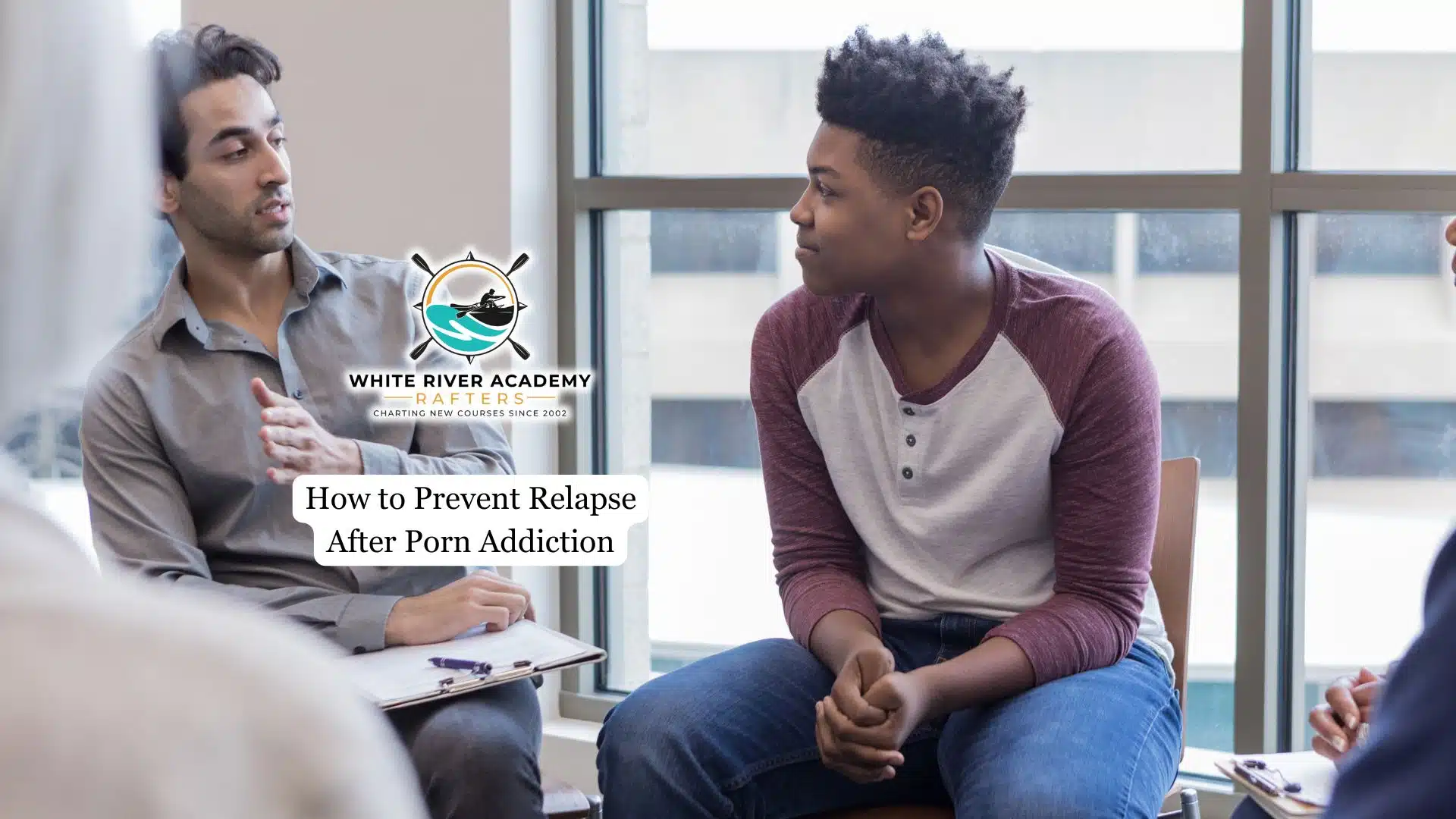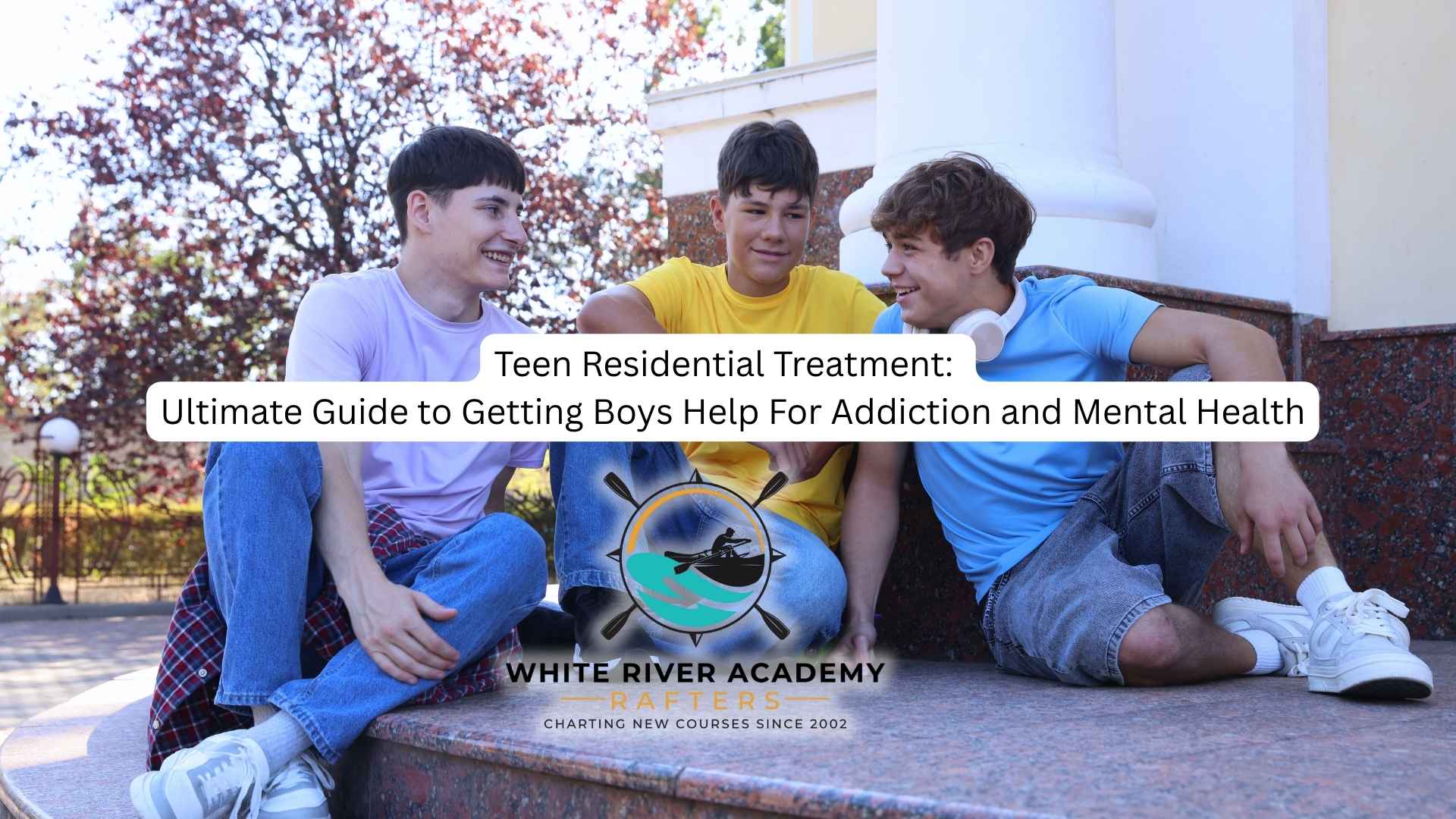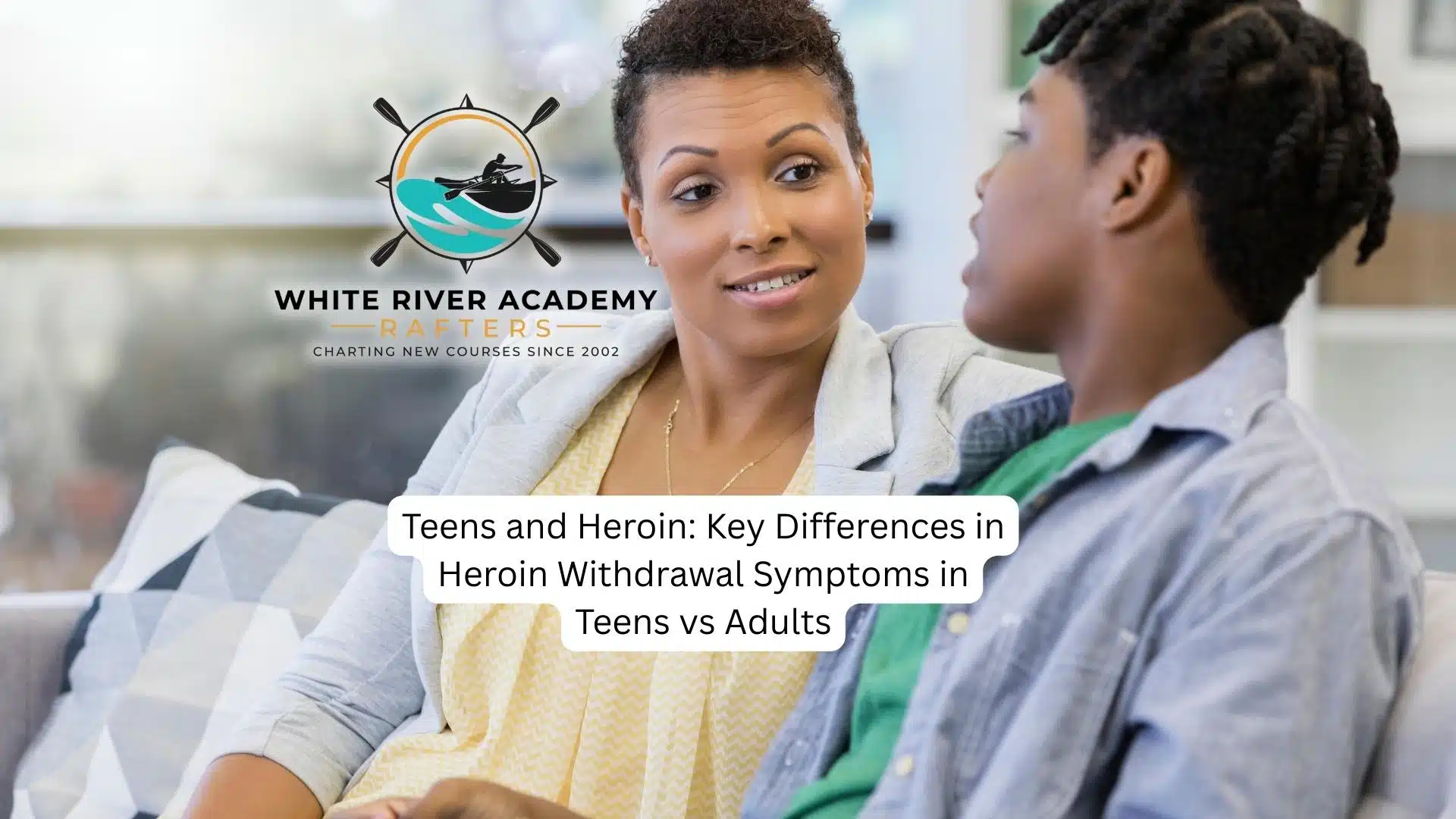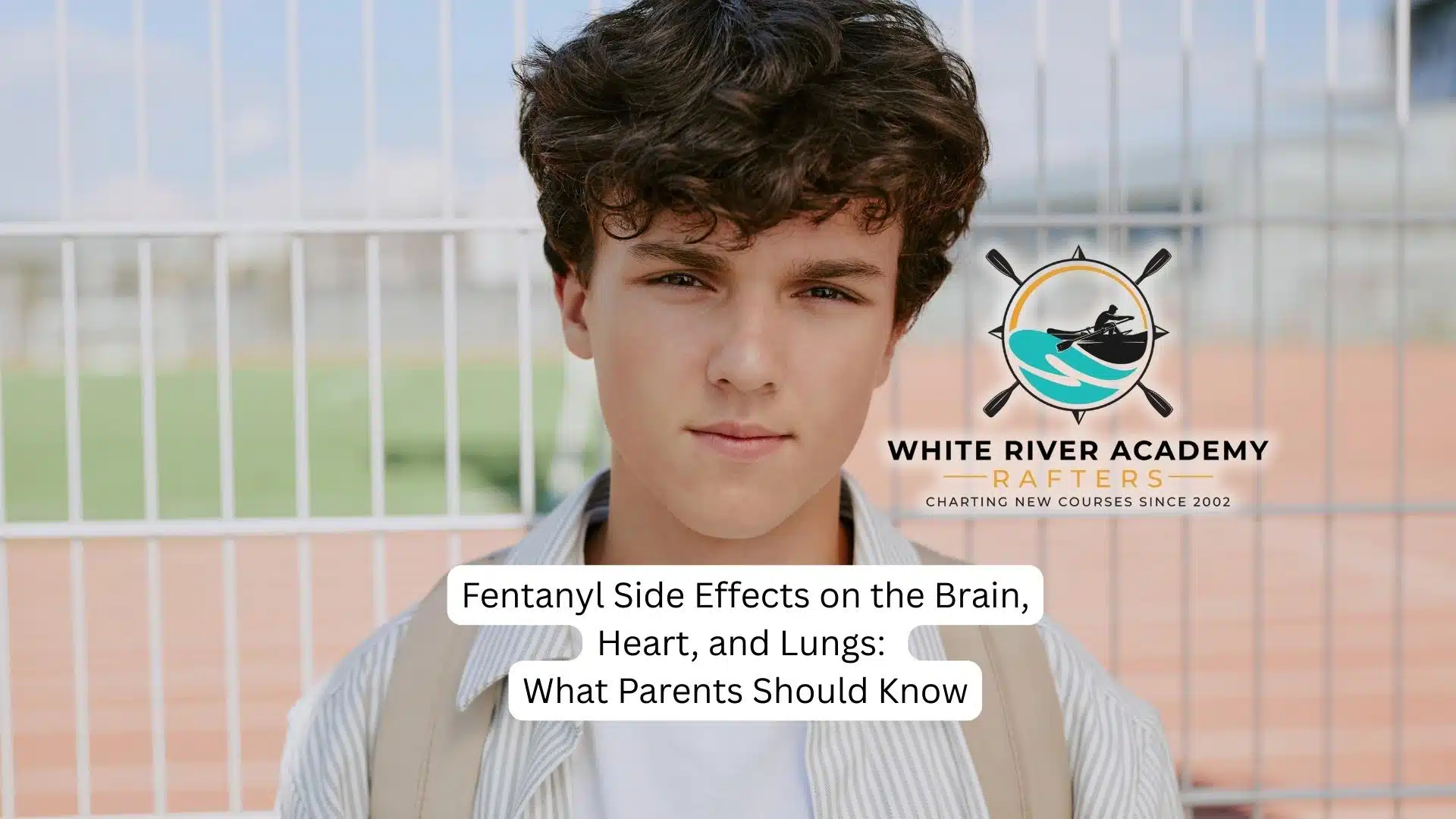Preventing relapse after porn addiction involves deeply understanding one’s personal triggers and building sustainable coping strategies. Whether these triggers stem from emotional states, certain environments, or social situations, recognizing them is key to managing cravings effectively. Creating a supportive environment with trusted people and setting clear boundaries around technology use also strengthens the commitment to recovery.
In this article, we’ll explore a variety of effective strategies for parents aiming to help their teen sustain recovery after porn addiction, and create a relapse prevention plan to develop the resilience and tools necessary to maintain long-term recovery and help your teen regain control over his life.
Understanding Relapse in Porn Addiction
Relapse in porn addiction refers to returning to porn use after a period of abstinence and is a common part of the recovery process rather than a sign of failure. It often occurs due to triggers like stress, emotional distress, or certain environments, which can lead to feelings of shame and guilt.
However, viewing relapse as an opportunity to learn helps individuals better understand their addiction and develop stronger coping strategies. Recognizing relapse as a natural, transitional phase encourages ongoing self-reflection and resilience, ultimately supporting sustained recovery and healthier long-term outcomes.
If you are looking for support and guidance for your teen’s recovery from porn addiction, White River Academy’s Porn Addiction Program in Utah offers a safe and supportive environment where teen boys can have the opportunity to explore the root causes of their addiction, build effective coping skills, and create meaningful relationships.
Common Triggers for Relapse
To safeguard recovery, teens are encouraged to identify their personal triggers through methods such as self-reflection and journaling. By recognizing these specific factors that trigger cravings, individuals can develop effective strategies to remain committed to their recovery journey.
- Emotional Triggers: These include stress, anxiety, and feelings of loneliness or boredom. These emotions can create a desire for immediate relief, which may increase the risk of relapse.
- Environmental triggers: Situations such as being alone or having easy access to the internet can heighten the likelihood of engaging in addictive behaviors. Additionally, exposure to sexualized media, whether through social media platforms or various forms of entertainment, may amplify cravings.
- Psychological Factors: Unresolved trauma, low self-esteem, and negative self-perception can increase vulnerability to relapse.
Strategies to Prevent Relapse
Increase Self-Awareness and Monitoring
Keeping a journal to track their moods, triggers, and behaviors can help teens recognize patterns that may lead to cravings or relapse. By identifying early warning signs such as feelings of isolation, increased secrecy, or neglecting self-care, they can act quickly before the situation escalates. Mindfulness practices are also valuable tools, helping them stay present and aware of their thoughts and emotions without judgment. This heightened awareness empowers them to make conscious choices rather than reacting impulsively to triggers.
Develop Healthy Coping Mechanisms
Replacing pornography use with positive, fulfilling activities is essential for long-term recovery. Engaging in exercise, pursuing hobbies, or spending time with friends and family can provide healthy outlets for stress and emotional needs. Building emotional resilience through stress management techniques such as deep breathing, meditation, or journaling can reduce the urge to seek escape through addictive behaviors. Establishing consistent self-care routines, including adequate sleep, balanced nutrition, and relaxation, supports overall well-being and strengthens your teen’s ability to cope with challenges without reverting to old habits.
Therapeutic Support and Professional Help
Approaches like cognitive-behavioral therapy (CBT), trauma-informed therapy, and mindfulness-based interventions can help your teen understand the underlying causes of addiction and develop effective strategies to manage cravings. Structured recovery programs, such as the Sexual Addiction and Betrayal Recovery (SABR) program, provide a comprehensive framework for healing and accountability. Knowing when to seek professional help for your teen, whether for individual therapy, group counseling, or family support, ensures your teen has the guidance and tools needed to maintain progress and address setbacks.
Build a Strong Support Network
Accountability partners, peer support groups, and communities of individuals facing similar challenges offer encouragement, understanding, and motivation. Groups like Pornography Addicts Anonymous or Valor Groups provide safe spaces for teens to share experiences and receive support. Open communication with trusted friends and family members helps reduce feelings of isolation and reinforces your teen’s commitment to recovery. Regular check-ins with your support network can provide the extra layer of accountability needed to stay on track.
Create a Trigger-Free Environment
Minimizing exposure to triggers is a practical and effective relapse prevention strategy. This can involve installing internet filters, managing device usage, and limiting time spent alone in environments where temptation is high. Setting clear boundaries around media consumption and social situations helps reduce the risk of encountering high-risk scenarios. It’s important to regularly reassess your adolescent’s environment and adjust these boundaries as his recovery progresses to ensure ongoing protection against relapse. Creating a safe, supportive space fosters healthier habits and reduces the likelihood of slipping back into old patterns.
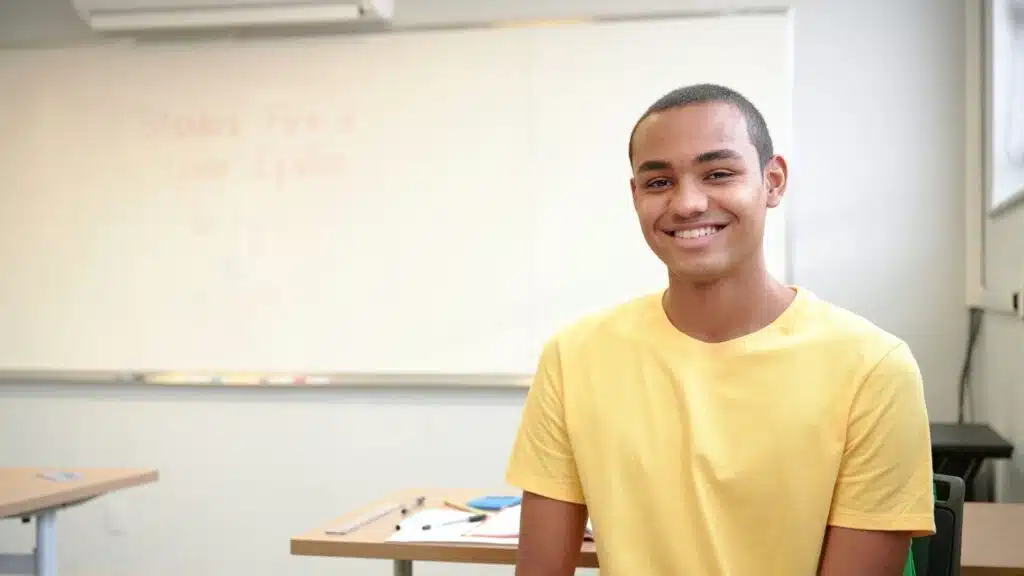
Coping With Relapse If It Happens
Relapse can still occur despite the implementation of preventive strategies. When your teen experiences a relapse, it’s important to approach the situation with compassion. Acknowledging feelings of shame or guilt is a valid response, but it shouldn’t dictate your boy’s recovery journey.
Seeking support from family, trusted friends, or support groups is advisable, as it can provide necessary assistance during difficult times.
Analyzing the factors that contributed to the relapse is a critical step. Identifying specific triggers can help in modifying existing strategies to better cope in the future. This analysis should be framed as a learning experience, rather than a means of assigning blame.
Reaffirming commitment to recovery can be achieved by setting new, realistic goals that align with one’s current circumstances.
Understanding that relapses can offer insights into one’s recovery process is essential. This perspective can facilitate a stronger resolve and enable continued progress toward recovery.
Long-Term Support and Growth
As individuals progress in their recovery journeys, long-term support and sustainable growth are crucial for maintaining progress and motivation. A strong support network is foundational; therefore, seeking accountability partners or participating in support groups can facilitate sharing experiences and learning from others.
Acknowledging and celebrating wins, regardless of size, can reinforce commitment to the recovery process. Engagement in personal development activities, such as workshops or reading self-help literature, can enhance self-awareness and promote ongoing growth.
It’s also important to continuously refine coping strategies to ensure they remain effective as circumstances evolve. Regularly reflecting on both progress and setbacks is vital – such reflections serve as opportunities for learning and contribute to a clearer understanding of the recovery experience.
This continuous process not only helps mitigate the risk of relapse but also contributes to the development of a healthier and more fulfilling life. Implementing these strategies with consistency can promote stability and resilience in the long-term recovery journey.
Final Thoughts from White River Academy
Preventing relapse after teen porn addiction requires ongoing self-awareness and effort, focusing on identifying personal triggers, developing healthy coping strategies, and building a strong support network. Support from friends, family, or groups provides encouragement and accountability, with open communication reinforcing a commitment to recovery.
White River Academy’s Utah-based specialized therapeutic program for adolescent boys dealing with porn addiction offers personalized care, expert clinical support, and a compassionate community dedicated to lasting recovery and emotional wellness.

